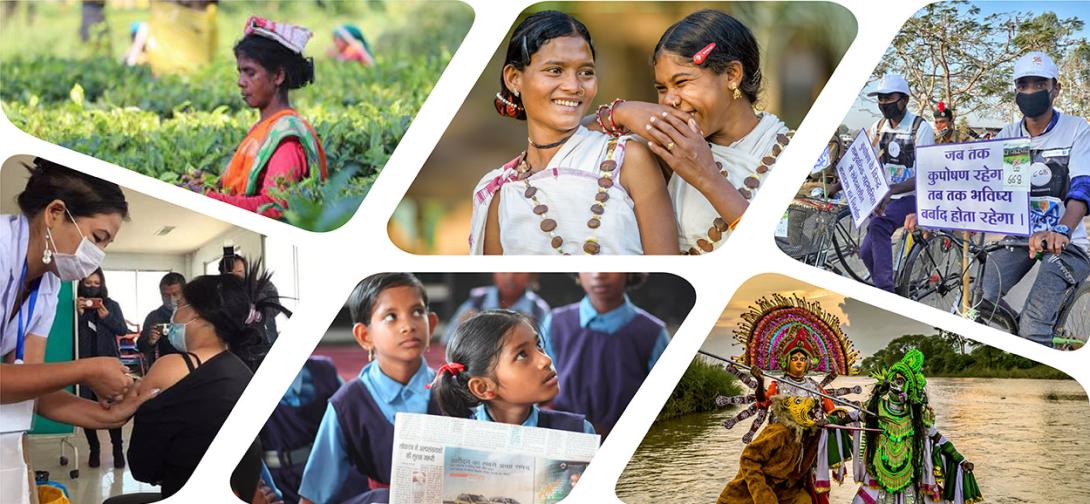Fostering Innovation for Sustainable Development
In the last few years, innovation in India has reached a tipping point, with social enterprises too leveraging it to the best of results.
SKS Microfinance has successfully innovated the ‘Grameen Bank Microfinance Model’, which has figured out a unique way to scale up the penetration and impact of the organization and acquired SKS a membership of 5.7 million across 16 states in 11 years.
Akshaya Patra is the world’s largest NGO-run school meal programme—it reaches 10 million children across 5 states, six days a week. And they serve freshly cooked meals at Rs 1.50 per meal. This was achieved through a ‘technological innovation: to prepare meals on large scale in a short time’ and a ‘logistics innovation: to reach the meals to the schools’.
Others like Goonj—which creates rural value from urban waste in a manner that is mutually dignified—and MV Foundation—which has come up with a new way to rescue child labourers and give them schooling—are offering non-linear solutions to the country’s developmental challenges.
Government agencies are also leveraging innovation for inclusive growth. The Defence Institute for High Altitude Research in Ladakh has played a transformational role in accelerating the socio-economic development of the region. Many initiatives, such as solar energy-based low-cost greenhouses and zero energy-based storage, have transformed vegetable and animal productivity and output, and even raised the tree line above 13,000 feet.
The Government of Karnataka partnered with Azim Premji Foundation to innovate primary education in government schools. They have instituted an innovative process to assess a school’s capability to build student competencies rather than merely marking them. This will lead to many more students passing out of primary schools with basic competencies.
Atal Innovation Mission too, has been relentlessly promoting a culture of innovation and entrepreneurship in the country.
In its very first year, AIM undertook six major initiatives: (i) Atal Tinkering Labs, (ii) Atal Incubation Centres, (iii) Atal New India Challenges, (iv) Mentor India Campaign, (v) Atal Community Innovation Centre, and (vi) ARISE.
At the school level, AIM has established thousands of Atal Tinkering Labs to enable students between classes VI–XII access to innovative tools and technologies, such as 3D printers, robotics, miniaturized electronics, and do-it-yourself kits. So far, there are over 4880 operational labs in more than 650 districts of India—over 2 million students have access to these labs.
At the university, institution and industry levels, to promote an ecosystem for start-ups and entrepreneurs, AIM has been establishing Atal Incubation Centres (AICs). To date, AIM has selected 102 universities, institutions, and private players, each of whom foster the creation and nurture of 40–50 start-ups every four years. So far, over 50 of them are operational, with more than 900 operational start-ups.
To ensure that innovation reaches the remotest and underserved regions of the country, including tribal and hilly areas and aspirational districts, AIM sets up Atal Community Innovation Centres (ACICs). Based on a unique partnership-driven model, an ACIC is granted up to Rs 2.5 crore by AIM if a partner proves equal to or greater funding. So far, over 300 applications have been received and the plan is to establish more than 50 ACICs in the next two years.
Atal New India Challenges strive to create innovative products and services that can have socio-economic impacts. So far, AIM has organized over 24 challenges in partnership with five different Union ministries and departments. Of the 950 applications received, 52 have been selected for grant in aid and handholding by incubators/mentors of AIM.
For the MSME/start-up sector, AIM’s ARISE seeks to convert great research ideas into viable innovative prototypes, followed by product development and commercial deployment.
To help all these initiatives to succeed, AIM has launched one of the largest mentor engagement and management programmes, called ‘Mentor India: The Mentors of Change’. To date, AIM has recorded over 10,000 registrations, with more than 4000 of those allocated to ATLs and AICs.
The growing innovation momentum in corporates, social enterprises, NGOs, and government agencies is beginning to have a significant impact. More and more organizations have embedded innovative cells in their organization’s structure. Let us build this momentum to the point it makes India the ‘innovation capital of the world’.
*R. Ramanan is Mission Director, Naman Agarwal is Innovation Lead and Himanshu Agarwal is a Young Professional, NITI Aayog.
